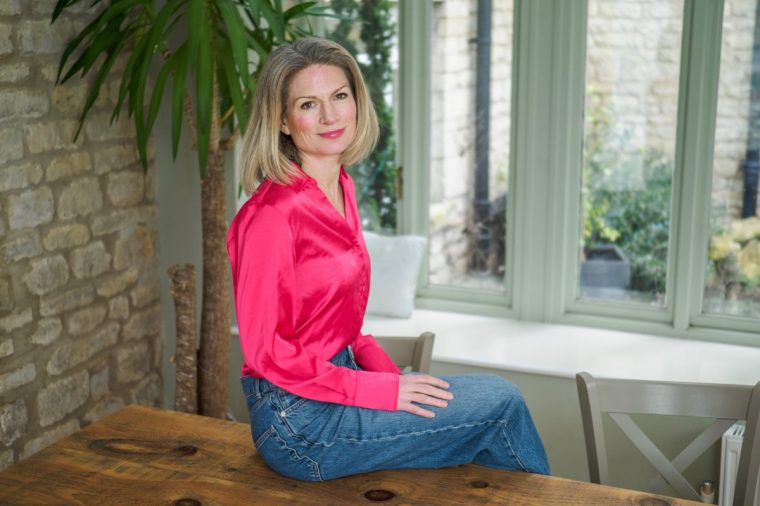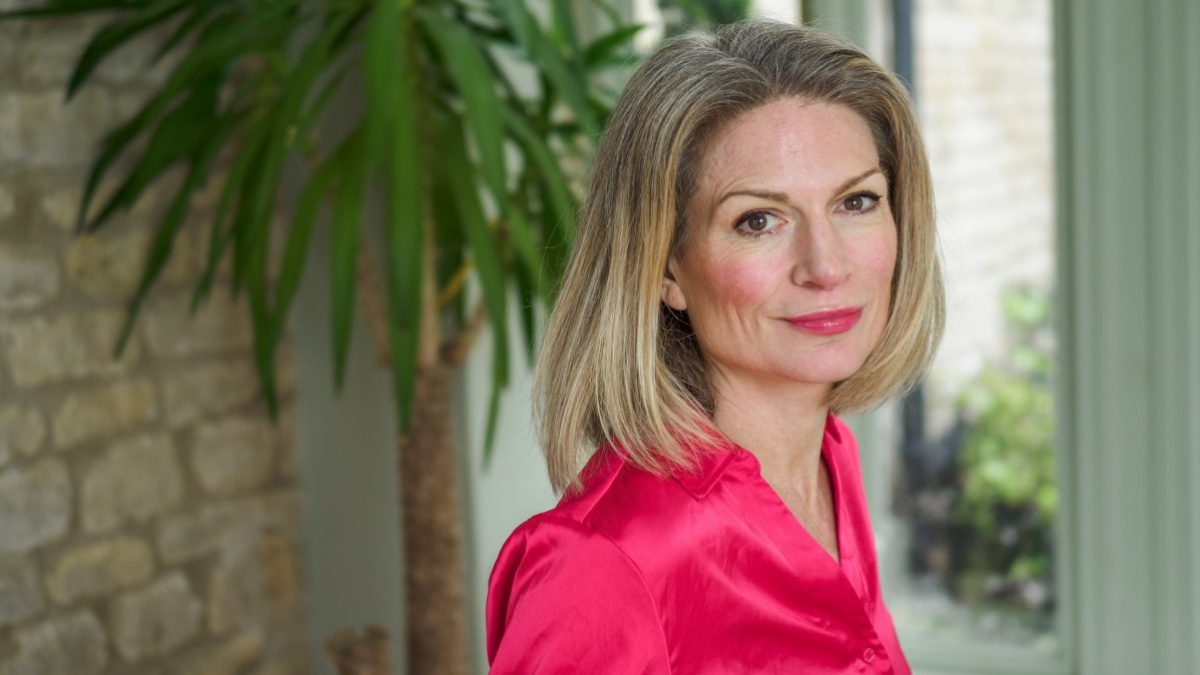It’s all too easy to believe the hype of certain wonder supplements, including collagen, but all is not necessarily as it seems
Davina McCall says it has left her skin “firmer,” presenter Amanda Holden looks “more glowy” and broadcaster Susannah Constantine describes herself as “less dry and crepey.” But it was the science as much as the never-ending rota of midlife celebrity endorsements that swung collagen supplements for me.
As a health journalist, I was intrigued to read that a randomised, double-blinded independent clinical trial funded by leading brand Ingenious found 98 per cent of women taking its collagen supplements experienced improved skin and 77 per cent a reduction in fine lines and wrinkles.
The extent of my anti-ageing beauty regime was a retinol serum from budget skincare brand The Ordinary, I had long been a supplement sceptic and at £120 per rolling three-month subscription, the product wasn’t cheap. Yet the evidence sounded persuasive and with invisibility encroaching as my forties progressed, it was an investment I was willing to make.
My collagen experiment
I swallowed three capsules on an empty stomach before bed as instructed. Every morning, I scrutinised my face for signs of smoother, dewier skin. Every morning I saw none. I told myself to be patient. Giving up would render my financial outlay meaningless, or worse: I might suffer some sort of collagen collapse and end up more haggard than ever.
Days turned into weeks. It was 15 months before I finally accepted that the product seemed to have made zero difference to my skin (or, for that matter my joints, energy levels or sleep – all of which collagen has been credited with improving), by which time I’d spent £600 and felt like a fool.
Collagen is set to gain another wave of hopeful midlife recruits – after rival supplement company Ancient + Brave announced McCall as its latest ambassador, In its own “gold standard” clinical trial, 100 per cent of participants noticed a “statistically significant improvement…in visible signs of ageing.”
On Trust Pilot, meanwhile, 81 per cent of Ingenious’ 1,149 reviews are five star, with customers raving about the supplements’ effects on their skin, hair and nails. So am I simply an unfortunate anomaly for not seeing results? What is the truth behind collagen’s seemingly unstoppable rise?
 Journalist Antonia Hoyle at home Stamford, Lincolnshire (Photo: Tony Buckingham)
Journalist Antonia Hoyle at home Stamford, Lincolnshire (Photo: Tony Buckingham)
The global supplement industry was valued at £138bn last year, of which over £1.5bn is estimated to come from collagen pills, powders and drinks – and much of the revenue courtesy of female customers my age, hormones fluctuating and desperate to keep the years at bay. One recent survey found women spend an average of £147 a year on supplements to counter the effects of perimenopause and menopause.
“It doesn’t surprise me that all these claims have been made, because there’s a huge amount of money in it,” says James Goodwin, Visiting Professor in Physiology of Ageing at Loughborough University. “But what seems to be absent in all of them is any basic understanding of the chemistry of collagen.”
Do you actually need a supplement?
Collagen is a structural protein in our joints, muscles and skin, critical for tissue repair, that declines as we age. Too large a molecule to be absorbed into our blood when we eat it as food, we break it down and absorb its components instead – chains of amino acids such as glycine, proline, hydroxyproline, and lysine that form peptides. “The cells take amino acids and produce collagen,” explains Ilaria Bellantuono, Professor in Musculoskeletal Ageing at the University of Sheffield.
It has been shown collagen supplements can increase our levels of collagen, and Ingenious claims its formula stops its supplement being broken down by stomach acid so it reaches the small intestine intact, where absorption occurs.
But Goodwin and Bellantuono tell me there is no reason why we can’t get all the amino acids we need to make collagen from our diet. “For example, proline is found in egg white, meat, fish. Glycine is found in red meat, chicken, pork,” says Bellantuono.
Even then, there is no guarantee increased collagen levels will result in better skin, “because of competing demands from the rest of the body,” says Goodwin. “No individual has any control over their internal physiology.” To date, it has been impossible to analyse exactly what effect collagen peptides have on human skin. “Nobody really knows where they go. Nobody’s actually looked,” says Bellantuono.
The problem with trials – and self-funded research
In 2023 a meta-analysis on the effects of collagen supplements on skin anti-ageing published in the journal Nutrients found they improved skin hydration and elasticity. However, the studies were small and participants’ lifestyle habits that could also have led to the improved appearance of skin were not analysed. The authors concluded “additional studies, specifically large clinical trials, are needed.”
The evidence “is not what I would call robust,” says Goodwin. He predicts that if you did a trial comparing the skin of people taking a collagen supplement against the skin of a group increasing the amino acid content of their diet, by eating more protein: “Odds on, you wouldn’t find any difference.”
Bellantuono points out “many biases” in the research to date and says collagen supplements often contain ingredients such as Vitamin C and Zinc, essential for building collagen, which could themselves increase skin’s water content, improving appearance, “so there are things that are difficult to untangle.”
All of which complicates the bold claims of Ingenious and Ancient + Brave’s self-funded research. Ingenious describes its 2019 12-week trial, with 116 women aged 30 to 60 as “massive” but Goodwin says a trial needs “several hundred” people in it to be conclusive because “with that huge number you eliminate effects due to individual differences.”
One half of the trial’s participants were given a placebo, and neither participants nor researchers knew who was getting the supplement. Results were assessed using facial imaging and a suction device to assess how quickly skin reverts to its original shape.
The average skin elasticity improvement for the group taking the supplement was 33.9 per cent – across the age brackets, the average wrinkle reduction was 26.5 per cent, the average hydration improvement was 29.8 per cent.
All of which sounds impressive to the average consumer. But, says Bellantuono, “you can’t decide whether that is a good trial or not” from the information provided on Ingenious’ website. “Let’s say there are biases in the way they are divided, the placebo and the treatment group. The treatment group may have more younger people. Have they controlled for their lifestyle – what if in the treatment group there are more people doing exercise and a good diet? They may have done a fantastic job, but they’ve not put the data out there. At the very least they should put those data on their website, so everyone can scrutinise.”
When I asked Ingenious and Cutest, the testing company Ingenious used for its trial, for more information they said volunteers were randomly assigned “ensuring similar demographics” in each group and that the trial was consistent with guidelines for phase 1 clinical trials published by the Association of the British Pharmaceutical Industry.
Pharmacist and Ingenious co-founder Pupinder Ghatora said its criteria for a fair trial “cannot be improved” and represents “the best and most reliable form of research, that provides direct evidence that a treatment genuinely works.”
Meanwhile, Ancient + Brave’s randomised, double-blinded, placebo-controlled 12-week trial had 90 female participants aged 35 to 55. Results were assessed with “visual grading” and questionnaires. In addition to a universal improvement in fine lines and wrinkles, skin elasticity and brightness among those taking the supplement, 80 per cent felt more energetic, 90 per cent noticed an improvement in muscle soreness and recovery from exercise and 77 per cent saw less hair breakage.
Dr Jenna Macciochi, Director of Science and Innovation at Ancient + Brave, told me “diet and lifestyle factors were accounted for, and participants completed diaries ensuring participants maintained usual routines to reduce external variability.”
Yet neither trial has been published in a peer-reviewed journal (Dr Macciochi says Ancient + Brave is “in the process of preparing the results for submission” while Ghatora says it has plans for publication.)
Goodwin says peer-review allows data to be properly scrutinised by other scientists, and claims if a trial is “not peer reviewed, or it’s paid for by a company with a commercial interest, you’ve got to be suspicious.”
And then there is the midlife factor
There is a worry consumers will be exploited, particularly at “the 40 to 50 junction,” says Bellantuono, when “you find yourself face-to-face with the reality you’ve reached midlife and you’re aging. There is an instinctive drive to stop it at all costs. So people are prepared to try absolutely anything.” Certainly, I feel incredulous at being 46 and my desperation to hold back time makes me a valuable customer.
Yet all too often we ignore the practical, and often free, steps we can take to improve our skin, says Bellantuono. These include protecting ourselves from UV rays that damage collagen, avoiding alcohol and smoking, both of which can damage collagen production, exercising regularly to increase blood circulation that improves cell repair, and following a healthy diet.
Goodwin avoids a vegan diet because “there’s a much lower density of amino acids in vegan food” but advises we eat food rich in vitamin C, zinc, copper and manganese, contained in fruit, vegetables and leafy green vegetables, essential to build collagen.
He also advises drinking a glass of water an hour – “the vast majority of people in Britain are dehydrated” – and adds: “Don’t smoke, don’t take drugs, don’t sunbathe, try not to breathe in polluted air, and above all don’t sit down all day. To me, the biggest intervention to slow down ageing is exercise.” He suggests 150 minutes of aerobic exercise and two sessions of weight-lifting a week and says there is “no such thing as a quick fix.”
My verdict
Fifteen months since I stopped taking collagen supplements, I wear sunscreen every day, exercise regularly, eat as much protein as possible and limit alcohol.
And when the glossy ambassadors for collagen supplement companies pop up on my Instagram feed and I’m tempted to give it another try I remember Goodwin’s tongue in cheek advice: “You shouldn’t have to spend £600. You just have to buy a bucket of chicken wings from KFC.”
6 ways to boost midlife skin – according to the experts
Embrace protein: particularly eggs, fish, red meat, chicken, pork
Protect your skin: wear sunscreen every day,
Eat plenty of fruit, vegetables and leafy green vegetables: essential for vitamin C, zinc, copper and manganese
Stay hydrated: drink a glass of water an hour
Get moving: aim for at least 150 minutes of aerobic exercise and two sessions of weight-lifting a week.
Steer clear of: smoking, drugs, sunbathing, pollution.
